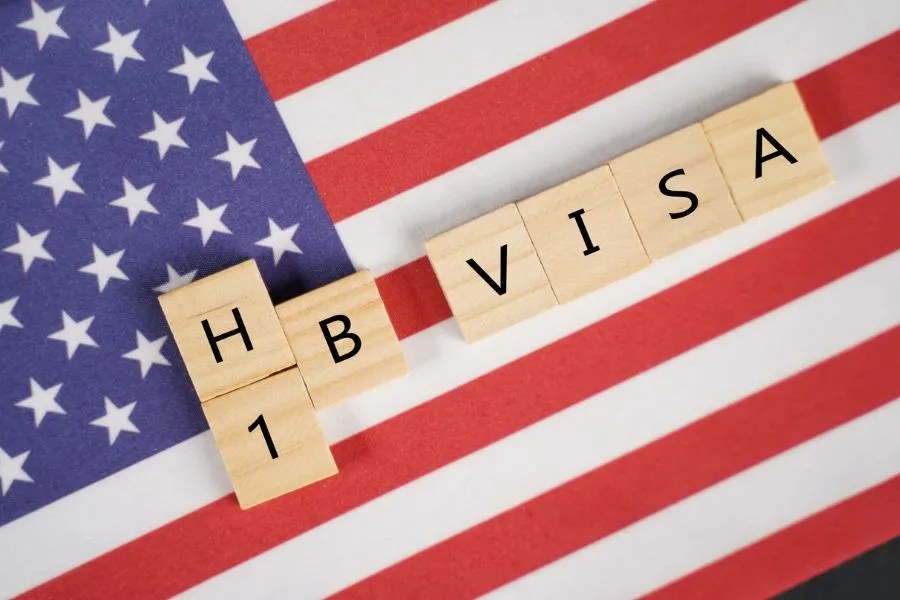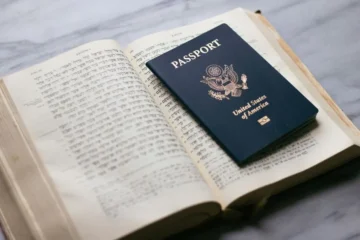Thinking about applying for an H-1B visa and wondering whether hiring a lawyer is worth the money, or even necessary? You’re not alone. In 2025, legal support can make or break your application, especially with tightening regulations and rising RFE rates. But how much will it cost you? This guide breaks down what H-1B lawyers charge, what’s included in their fees, who’s supposed to pay, and whether premium processing or RFEs could cost extra. Before you spend a rupee or a dollar, read on to make sure you’re getting the right legal help, without burning a hole in your pocket.
Key Takeaways
Why You Might Need a Lawyer for an H-1B Visa
Applying for an H-1B visa isn’t something most people breeze through on their own. Between the eligibility checks, documentation, deadlines, and strict compliance rules, it’s no wonder many applicants (and employers) turn to immigration lawyers. While not required by law, hiring one often means fewer headaches and a higher chance of success, especially when navigating the nuances of USCIS requirements in 2025.
The Average H-1B Lawyer Cost in 2025
Let’s talk numbers. The average H-1B lawyer cost in 2025 ranges between $1,500 and $4,500. However, complex cases, top-tier law firms, or urgent filing needs can easily push this fee to $5,000 or more.
While these figures might sound steep, they generally cover the entire lifecycle of the H-1B petition, from document gathering to filing and responding to queries from USCIS. Importantly, this amount is completely separate from the official USCIS filing fees, which typically fall on the employer’s shoulders.

Some companies pay the full legal fee for their employees, especially large corporations or tech firms, but in smaller businesses or consultancies, candidates may be asked to pay a portion.
Also Read: How to Get Permanent Residency in the United States (Green Card Guide for 2025)
What’s Typically Included in the H-1B Attorney Fee?
Not all legal services are equal. But at a minimum, a solid H-1B lawyer package should include:
- Initial consultation to assess your eligibility
- Filing of the Labor Condition Application (LCA) with the U.S. Department of Labor
- Preparation and submission of Form I-129
- Ongoing communication with the employer or HR representative
- Guidance on maintaining compliance and handling updates
- Basic response to Requests for Evidence (RFEs) if they arise
Some attorneys also offer consultation hours, mock interview prep, or even assistance with dependents (H-4 visas), but these usually come at additional cost.
Who Pays: You or the Employer?
This is where things get technical. U.S. labor law requires employers to pay for certain “business-essential” parts of the H-1B process, like the LCA and the base legal filing. These expenses are not supposed to be passed on to the employee.
That said, premium services, such as faster processing, personalized legal advice, or attorney calls outside of work hours, can legally be paid by the beneficiary — i.e., you.
In real-world terms, it depends on your employer’s internal policies. Some cover all legal fees and even premium processing; others split costs or expect the applicant to cover extras. Always clarify this at the start.
Also Read: How to Book Your U.S. Student Visa Appointment for Fall 2025?
Are Premium Processing and RFE Handling Extra?
In most cases, yes. Premium Processing is an optional service that guarantees a USCIS response within 15 calendar days. In 2025, this comes with a $2,805 government fee, and lawyers usually charge an additional $500–$1,000 to coordinate it.
If USCIS issues a Request for Evidence (RFE) — which is fairly common — the complexity of your case will determine the response cost. While some attorneys include one RFE reply in their base fee, many charge $500 to $1,500 or more if detailed documentation or multiple rounds of correspondence are needed.
Why the Cost Can Vary So Much
Several factors influence what you’ll pay:
- Attorney’s reputation and location: Lawyers in major cities like San Francisco or New York charge more than those in smaller towns. Big law firms cost more than solo practitioners.
- Case complexity: If you’re switching employers, changing roles, or have a previously denied visa, your case will likely cost more.
- Timeline: Rushed filings or cases close to the H-1B deadline may carry premium legal charges.
Don’t be tempted to go with the cheapest option — a poorly filed petition can waste your only shot at the H-1B lottery for the year.
Can You Apply Without a Lawyer?
Technically, yes. Neither USCIS nor U.S. immigration law requires an attorney for H-1B petitions. Some large employers have in-house legal teams that take care of everything for their workers.
However, if you’re dealing with a small company, a consulting firm, or handling parts of the process yourself, hiring an experienced immigration attorney can make all the difference, especially if there’s a risk of RFEs or denial.
It’s all about risk vs. cost. A good lawyer won’t guarantee approval, but they’ll help you avoid rookie errors that could lead to unnecessary rejection.
Tips for Choosing the Right H-1B Attorney
Before signing on the dotted line, keep these tips in mind:
- Ask for a flat-fee quote — and find out what’s included (or excluded)
- Check their experience with H-1B cases, not just general immigration law.
- Avoid consultants or agents who aren’t licensed lawyers.
- Look for transparent communication, especially around costs and turnaround times.
- Read real client reviews (not just testimonials on the attorney’s website)
Also, beware of firms that overpromise success rates — no lawyer can guarantee approval in a lottery-based system like the H-1B.
Final Thoughts
Hiring an H-1B lawyer in 2025 may cost anywhere from $1,500 to $6,000, but that investment can be the difference between an approved petition and a rejection that sets your career back a full year. While your employer is often required to cover certain costs, it’s important to understand what you’re getting into if any part of the legal fee falls on you.
Whether you’re working with a major tech company or a startup sponsoring their first H-1B, a qualified attorney can simplify the process, flag issues early, and help you present a solid application. Just make sure you’re clear on the costs — and that the service is worth the spend.





